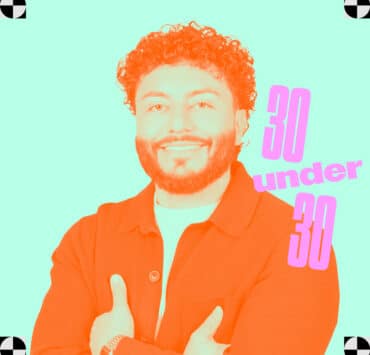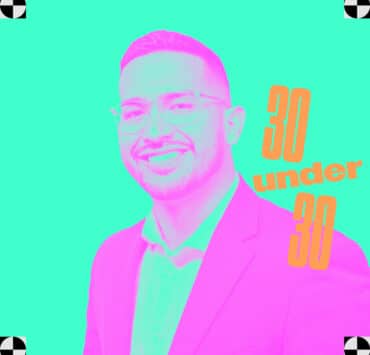|
Getting your Trinity Audio player ready...
|
Nicole Maldonado, a Colombian American raised in Colombia, serves as organizing manager at the ACLU of Oklahoma, where she builds people power to defend civil rights and advance justice. She designs grassroots campaigns, mobilizes volunteers, and forges coalitions that challenge harmful policies around immigration, LGBTQ+ rights, policing, and democracy. With a focus on bridging policy and lived experience, Maldonado works to create lasting systems of care and resistance.
What is your greatest career accomplishment to date?
I believe my greatest career accomplishment has been becoming a leader in my community by uplifting the voices of marginalized communities and calling out injustice when it happens. I’ve worked hard to create space for new voices—especially those who have historically been left out of advocacy and political conversations—and to help them feel empowered to take action. Whether it’s through organizing campaigns, community events, or coalition work, I take pride in helping shift power toward the people most impacted.
What is your greatest personal accomplishment to date?
My greatest personal accomplishment has been building a life and a voice in this country after arriving alone at 17, without family, friends, or a clear roadmap. I came here not knowing anyone, and now I’m a college graduate who has had the opportunity to run for political office, organize in my community, and speak in front of thousands of people. Growing up in a small town in Colombia, I never imagined I’d be able to do any of that. It’s a reminder of how far I’ve come—and of the responsibility I carry to open doors for others, too.
What do you do today to impact your community?
I currently serve as the President of the LULAC Oklahoma City chapter and as a member of the Oklahoma City Public Safety Advisory Board. In both roles, I work to amplify the voices of historically marginalized communities—particularly the Latino and immigrant communities—and help them engage in local decision-making processes.
Beyond that, I organize community events that create space for connection, empowerment, and education. Whether it’s a Know Your Rights training, a cultural gathering, or a civic engagement workshop, I believe that when people are informed and feel seen, they’re more likely to use their voices and participate in our democracy. I do this work because I know firsthand the power of belonging—and I want others to know they don’t have to navigate it all alone.
Where do you see yourself in five years?
In five years, I see myself becoming an even stronger advocate for those who are oppressed by unjust systems. I hope to attend law school to deepen my understanding of the law and use that knowledge to shape policies that create real change for my community. I also see myself running for office again—this time with more experience, more tools, and a continued commitment to bringing new voices and representation into the political arena. My goal is to keep building power with and for the people who are too often left out of the conversation.
What is the biggest issue that you want to help solve, and why?
The biggest issue I want to help solve is the lack of equity and representation across our systems—whether it’s immigration, education, the economy, or civil rights. I want to fight for immigrant communities who have worked hard and contributed so much to this country but are still denied basic dignity and protection. I want to protect LGBTQ+ rights so everyone can live and love freely without fear or discrimination.
I also believe that everyone deserves access to a strong public education system—regardless of where they live or how much money they have. And I want to help create an economy where young people can afford to build a life with dignity, whether that means starting a family, owning a home, or simply feeling secure.
These issues are all connected. At the root of it is the need for fair policies, inclusive leadership, and systems that value every person—not just the privileged few.
What is a moment when you realized the impact of your work?
I’ve realized the impact of my work in the quiet, powerful moments when someone tells me that a conversation, event, or speech helped them see things differently—or inspired them to speak up for the first time. Whether it’s a young person who decided to get involved in advocacy, an immigrant who found the courage to share their story, or someone who simply said, “I’ve never felt seen until now,” those moments remind me why I do this work.
Touching people’s hearts through words, experiences, and shared struggle is where real change begins—and seeing that shift in someone else is one of the most powerful feelings in the world.
What advice would 10-year-old you be shocked to hear you followed?
I think my 10-year-old self would be shocked to know that 26-year-old Nicole had the courage to live fully and unapologetically as herself—to love who she wanted, to speak her truth, and to take up space in rooms she never imagined she’d be in.
Growing up, I never thought someone like me—from a small town in Colombia—could one day be leading, advocating, and standing proudly in her identity. That kind of courage would have felt impossible back then, but it’s become my reality
What’s a cultural tradition that always brings you joy?
One cultural tradition that always brings me joy is the Independence Day of my home country, Colombia. It’s more than just a celebration—it’s a reminder of the resilience and strength of the people who came before us.
I think about those who fought for our country’s independence—many of them without shoes, proper clothing, or shelter, enduring extreme cold and harsh conditions. Yet, despite everything, they stood firm in their convictions. They fought for their ideals, their people, and their future.
Honoring that legacy fills me with pride and reminds me of the power of courage, even in the face of impossible odds.
What song do you listen to that motivates you?
“Milagros” by Karol g or “Radio” by Lana del Rey.
—-

